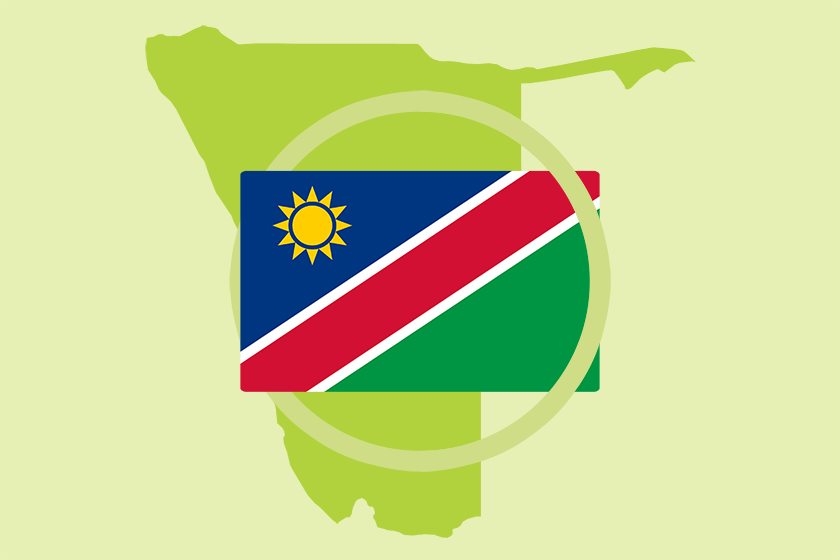Significant Growth Opportunities in Africa Discussed at CISAC African Committee in Namibia

CISAC’s African Committee (CAF) meeting was held in Windhoek, Namibia on 20-21 July 2016. Hosted by local society NASCAM and at the invitation of the government of Namibia, the two-day gathering united 31 representatives of 26 authors’ societies from 25 countries to provide attendees with a status update on activities throughout the continent as well as share perspectives on how to continue the significant growth of creators’ remuneration in Africa. SPA Director General Paula Martins da Cunha and Pan-African Composer’ and Songwriters’ Alliance (PACSA) President Sam Mbende were also in attendance. The committee meeting was preceded by the CAF Executive Committee meeting on 19 July.
The opening ceremony was opened with keynote speeches by a representative of the Namibian Ministry of Information and Communication Technology and CISAC Director General Gadi Oron. The Ministry of Information and Communication Technology representative stressed the great honour their country had in welcoming such an important event as the CISAC African Committee meeting, and expressed their gratitude to CISAC. The representative then stated the Ministry’s dedication to promoting collective management, particularly in Namibia. Gadi Oron welcomed representatives, reminding them of the importance of their efforts to improve the situation of creators while highlighting the potential for continued growth in Africa.
The election of the new CAF Executive Committee took place before Oron provided an overview of CISAC's priorities for the coming year. The new CAF Executive Committee includes BURIDA as President, SAMRO as Vice-President, and Chair members from MCSK, CMC and ONDA. Oron underlined CISAC’s priorities, which include: the proposed governance reform, international cooperation, legal and policy work, educational activities, information technology and the EY-prepared “Cultural Times” study.
Following previous committee meetings, CISAC Director of Business Standards and Rules Sylvain Piat continued his in-depth presentation of the governance reform project with the African Committee. The reform of membership categories, compliance reviews and the process of declaring financials is in progress in order to increase transparency and efficiency across CISAC's member network. Societies are being encouraged to provide feedback on the reform.
The rest of the first day gave a chance for representatives and CISAC to meet with Namibian authorities and creators. This was followed by a press conference before the evening wrapped up with an informal reception, giving representatives the opportunity to meet and further discuss opportunities and challenges in Africa.
The second day included a report by CISAC Regional Director for Africa Balamine Ouattara on CISAC's activities in Africa over the past year. CAF Chair Assa Irène Vieira, SAMRO CEO Abe Sibiya and ONDA CEO Bencheikh El Hocine then fielded questions regarding the continent from representatives.
The agenda shifted to a global focus with the committee discussing prospects to bolster North-South relations. SPA provided an update on their cooperation with Portuguese-speaking CAF members. Significant progress has already been made by these societies, and will continue to be made with the support of SPA, encouraging the development of Portuguese-speaking CISAC members in Africa. PACSA President Sam Mbende presented on the organisation’s activities lobbying for composers and songwriters in Africa over the past year. Through its web site, PACSA has greatly improved sharing of information amongst African creators and mobilizing them to foster authors' rights. SAMRO CEO Abe Sibiya then assessed progress on the African common database project.
Wrapping up the African committee meeting were two training sessions designed to enable African societies to increase their operational efficiency. The first one was a seminar on the use of fingerprinting technology for identifying programmes (e.g., radio, television). The second, presented by CISAC Quality Controller Miriam Orozco, focused on filling out CISAC's Income & Expenditures declaration, one of CISAC members' key obligations. This session completed the I&E training for CAF members with the first group taking place in Paris prior to the General Assembly. The ultimate goal of this training session is to help harmonise and improve the financials that are reported to CISAC from member societies and to answer questions.
Read the Minister of Information and Communication Technology speech.
